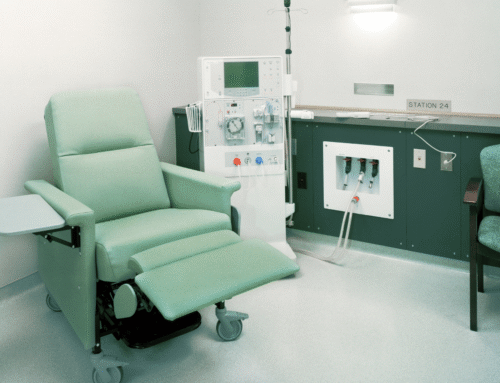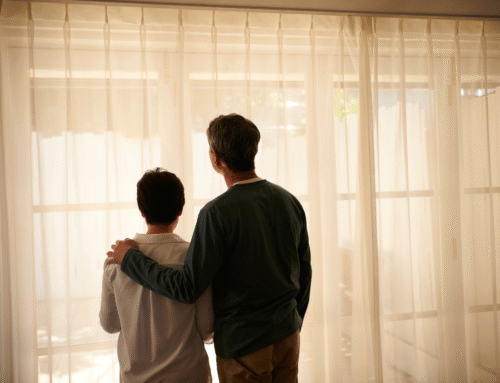
My COVID-19 experience
As news broke of the COVID-19 virus entering the UK, the reality of the pandemic began to set in; but it wasn’t until I was identified as being clinically extremely vulnerable that I really felt threatened. I received a text message from the government on April 7, 2020, instructing me to shield for 12 weeks on account of my serious autoimmune disease, which requires immunosuppression therapy.
Like most people, my partner and I spent the next seven months predominately inside the house. I became so paranoid over catching COVID-19 that every time my partner would need to go out, which was not very often as he worked from home, the anxiety I felt would sometimes result in panic attacks. Also, during this time the symptoms of my autoimmune disease spiraled out of control. I am unclear still as to the cause, but the stress from the fear of catching COVID-19 was certainly a contributing factor.
My health continued to deteriorate, and I was eventually taken to hospital on October 23, 2020. Although I was extremely ill, there were no hospital beds available when I arrived because, like most other facilities, the hospital was reaching its capacity. In excruciating pain, I was given an intravenous drip and left in a wheelchair in the middle of a corridor for 10 hours. Awareness of my vulnerability, and the risk of exposure in such a position, only added to my anxiety. I was eventually admitted to the hospital for four days, and as I recovered, I knew I was in danger of contracting COVID-19.
Exactly a week after I was discharged, while brushing my teeth, I realized I could not taste the toothpaste. I frantically ran around the house trying to smell anything, such as scented candles or perfume. I could smell nothing. My mother, who had stayed with me and my partner for the duration of the week to care for me, had just left to go home, believing my health had improved. I phoned her straight away and advised her to go directly home. My partner, mother, and I all booked COVID-19 tests for the following day, and we all tested positive.
I had felt much better when I was discharged from the hospital, but a few days later I took a turn for the worse and felt horrendous. I now know that it was actually because I had become infected with COVID-19, not from symptoms of my autoimmune disease. I had severe body and bone aches that caused me to be restless day and night. I particularly remember one day when I felt frozen to the bone, but I was also visibly sweating and hot to touch. I was physically unwell for around a week, and after that, severe fatigue set in. I would wake up at around 9 am, and by 11 am I would have to go straight back to bed. I could stay awake for only an hour or so before I would be physically exhausted. It took two to three weeks before I was fully recovered from COVID-19. Considering my extreme vulnerability to the virus, this was the greatest relief.
Meanwhile, my mother was experiencing the same symptoms that I had suffered from COVID-19. However, on the eighth day after her positive result, she started to deteriorate. I received a phone call from her very early the next morning to learn that she had been rushed to the hospital via ambulance. Overnight, her body had begun to react to the virus, and she had all of the symptoms of a severe allergic reaction. As the hospital was again too busy to admit her, she was discharged later in the day after receiving antihistamines and steroids. I immediately drove over to her house to care for her. This was on the day that I was officially no longer required to isolate myself at home, and as I had recently had COVID-19, I could risk being exposed to it again.
Over the next two days, my mother’s health worsened. Her whole body swelled to the point that she was unrecognizable. She was delirious and kept falling asleep. I made sure to keep waking her up to give her water, and I checked her temperature every hour, along with her oxygen levels. They were borderline dangerous, so I stayed by her bed every minute, frightened that her condition would worsen, with the emergency number entered on my phone. She broke out in a full-body rash, but then luckily her health improved over the next few days. It was a very scary time for us all, with this unusual reaction and the uncertainty of what might happen to her.
After my mother had recovered, we all began to feel much better, and fortunately, we have had no long-term Covid issues. Strangely, we felt a sense of relief that we had overcome COVID-19, as we’d been terrified of catching it and the worst happening. I am sure ours is but one of thousands of similar stories, filled with anxiety and ultimately, gratitude.
Image by Foundry Co from Pixabay
About the Author
Rebekah Carr
Rebekah Carr, a business graduate from the University of Chester in England, has an established career in the IT industry. She has suffered with an autoimmune disease for the past 8 years that has left her with a chronic skin condition. More recently she became infected with COVID, caring both for herself and her immediate family. Rebekah aims to raise awareness for not only her condition, atopic dermatitis but also for those living with life-altering conditions. Through her blog, https://bouncebacklikebekki.wordpress.com/, she has increased awareness of what it is like to live with a debilitating condition and the impact that this has on mental health. She has herself suffered with mental health issues during her journey with her condition and understands the battles that suffering from the autoimmune disease can bring. She hopes to build a community of people that can support each other as they navigate their illness and the associated emotional turmoil.
As news broke of the COVID-19 virus entering the UK, the reality of the pandemic began to set in; but it wasn’t until I was identified as being clinically extremely [...]



